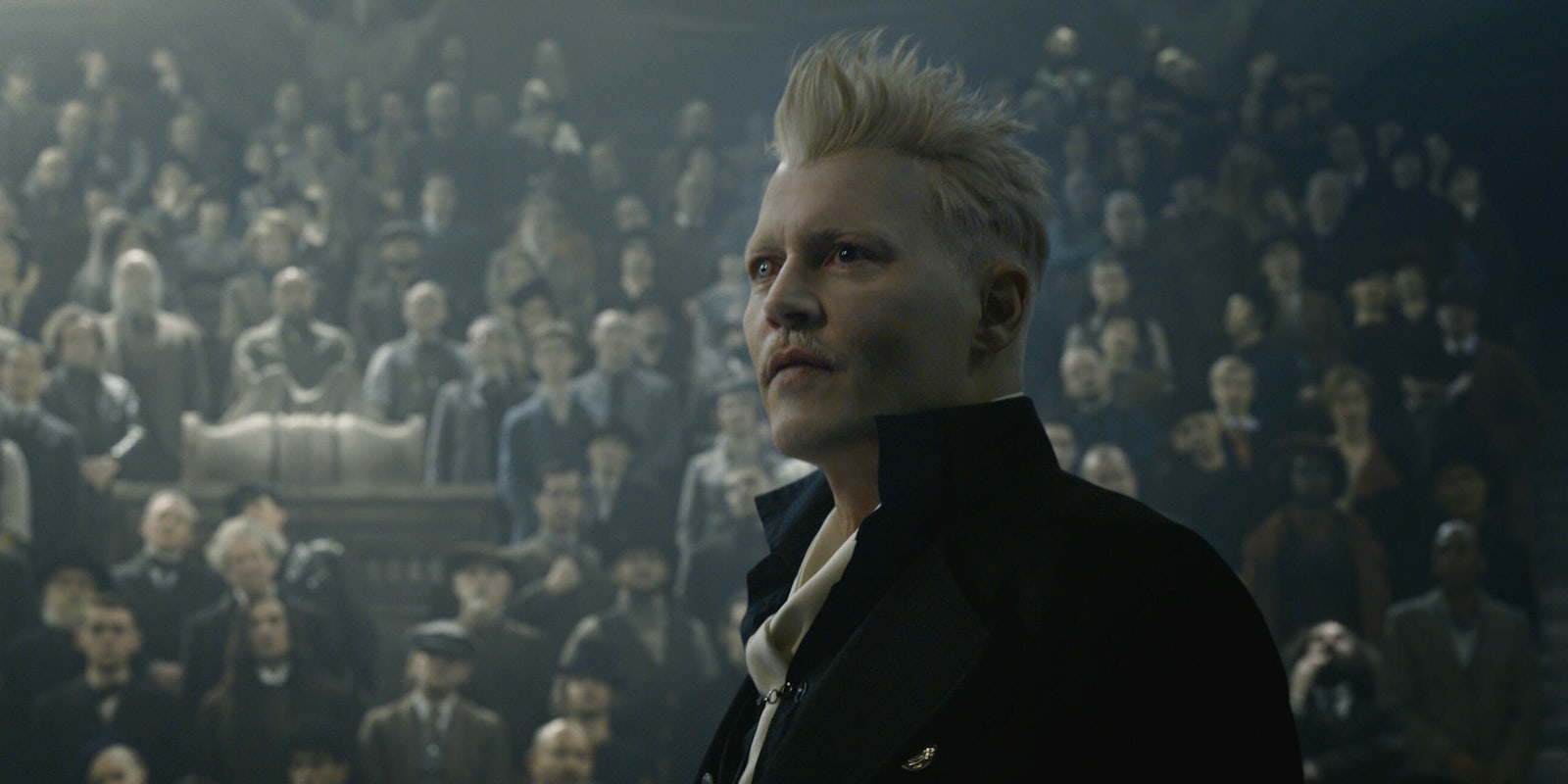This post includes spoilers for Fantastic Beasts: The Crimes of Grindelwald.
Fantastic Beasts: The Crimes of Grindelwald leaves the audience with a lot of questions. What’s up with Credence’s backstory? Did Leta really love Theseus? Also, why wasn’t this movie about, you know, the actual crimes of Grindelwald?
Think about it. Sure, Grindelwald does commit some crimes, but no more than your average Harry Potter villain. He’s actually lying low by Grindelwald standards, spending most of the movie chilling in a Parisian townhouse and letting his followers do the dirty work.
Oddly enough, Grindelwald’s biggest crimes happened before the franchise began. Fantastic Beasts opened with Grindelwald as an international fugitive, and ended with his arrest. The Crimes of Grindelwald begins with him escaping prison (definitely a crime) and then ordering his followers to kill a muggle family (also undeniably a crime) so he can steal their apartment (crime). But if you’re an infamous supervillain, is that really enough crimes to warrant a whole movie title? I don’t see the X-Men franchise subtitling anything The Crimes of Magneto.
Grindelwald’s big moment at the end is a political rally in a Parisian crypt, which is presumably illegal, except the Aurors are oddly reticent about actually arresting him. One Auror even points out that it’s not against the law for people to listen to him; a dig at free speech purists who think neo-Nazis should be allowed on TV debates. Grindelwald does admittedly commit some murders at the rally, but in the annals of Harry Potter villains, that’s still not especially notable. Bellatrix Lestrange probably had a higher body count.
If anything, the idea of “crime” in a crime-and-punishment sense is more relevant to the heroes. Grindelwald may be evil, but Newt Scamander and his friends are more in danger of arrest. Highlighting the idea of the Wizarding World as a restrictive police state, Jacob and Queenie face arrest or memory-wipes for being in a muggle/witch relationship. Newt smuggles himself illegally across the English Channel, and Dumbledore has to wear Ministry-issue magical handcuffs for most of the movie. They’re all criminals, in the eyes of the inhumane 1920s legal system.
Looking back, The Crimes of Grindelwald now seems like a cool-sounding title that doesn’t actually make sense. The Rise of Grindelwald would be more appropriate, although as my colleague Michelle pointed out, maybe the true Crimes of Grindelwald were the friends they made along the way.


